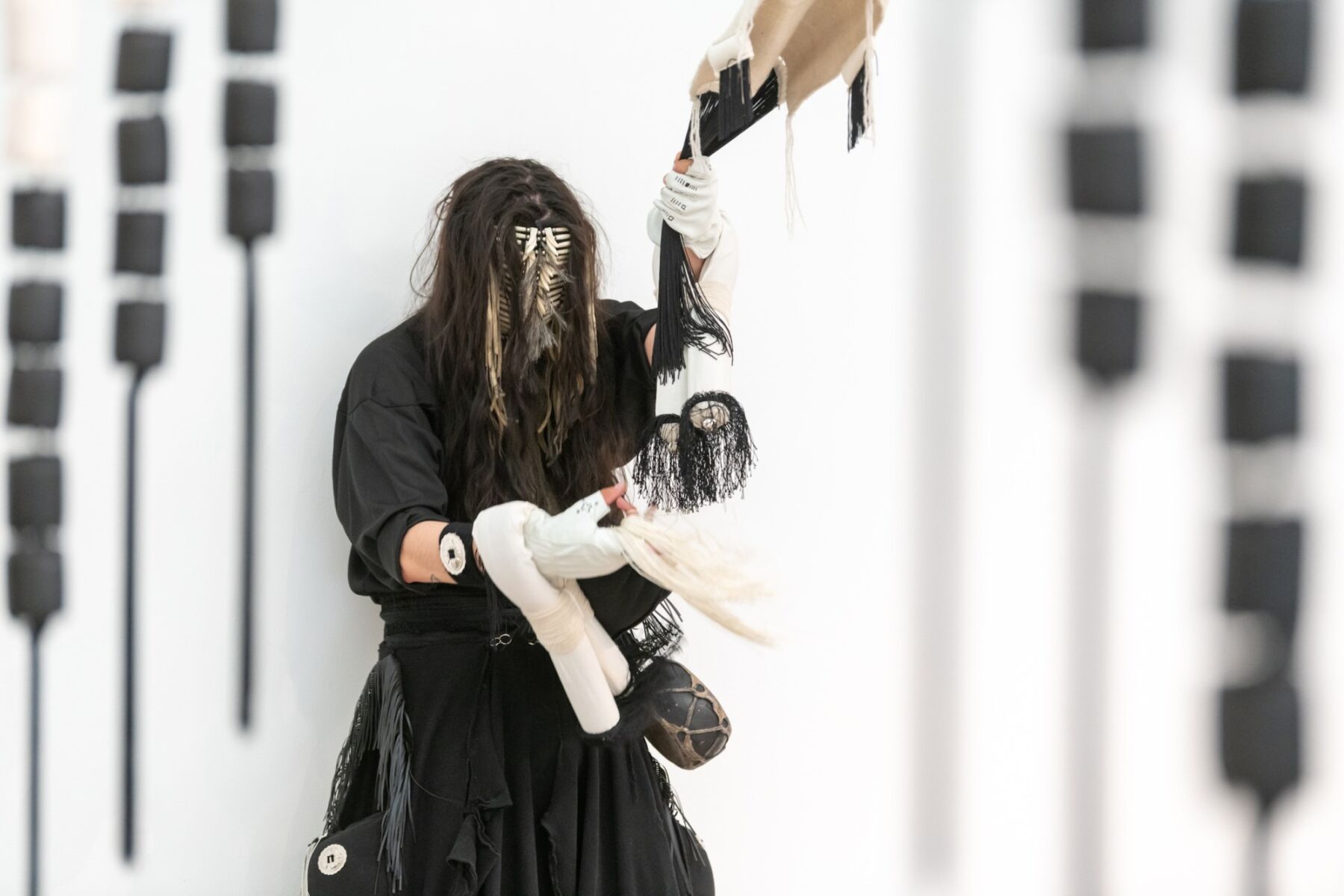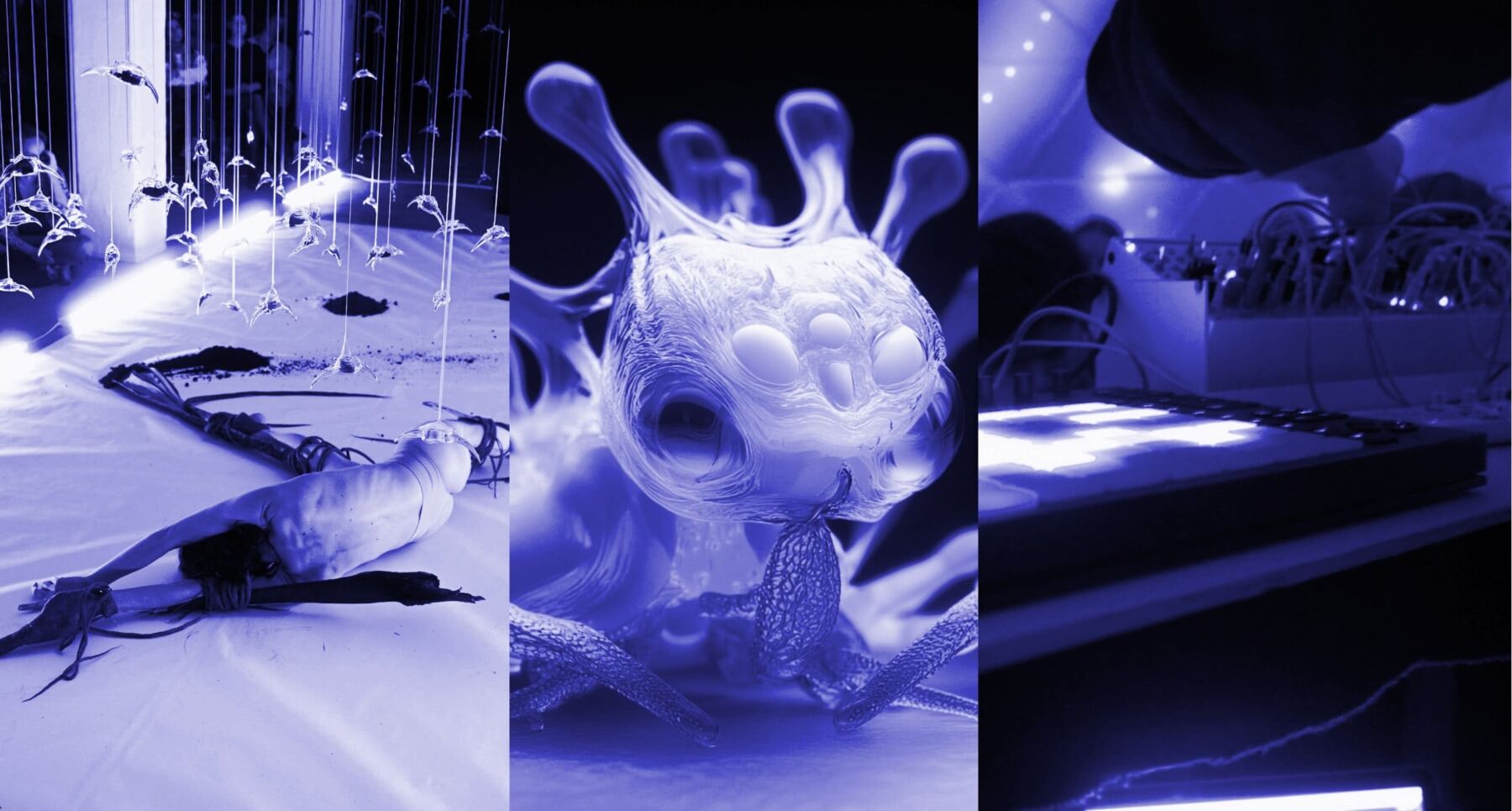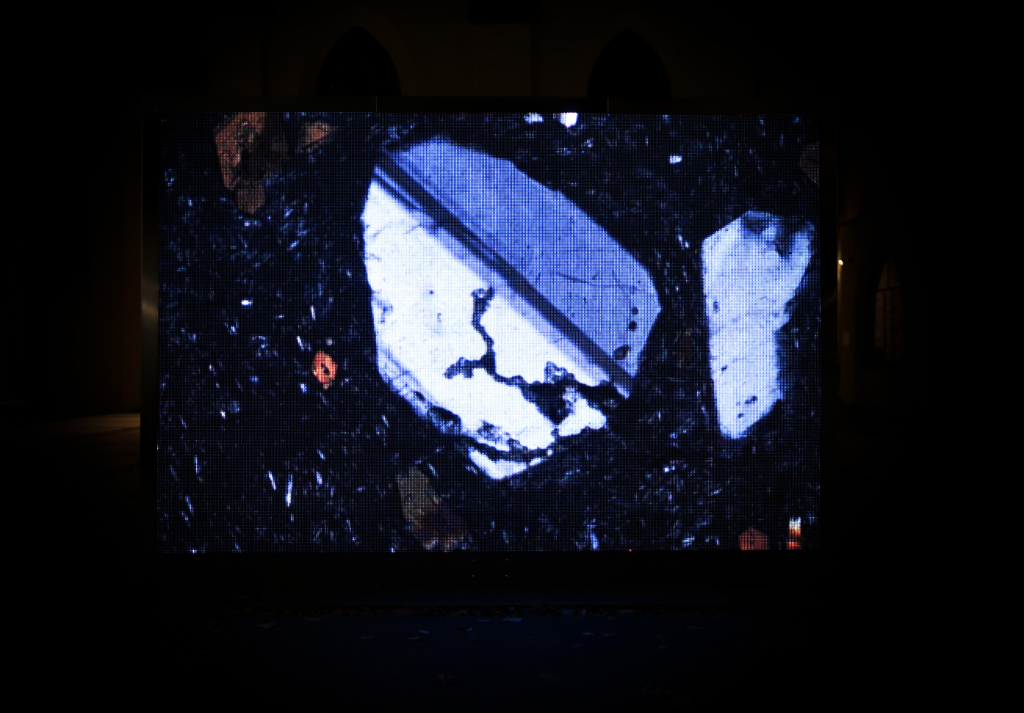Interview by Meritxell Rosell
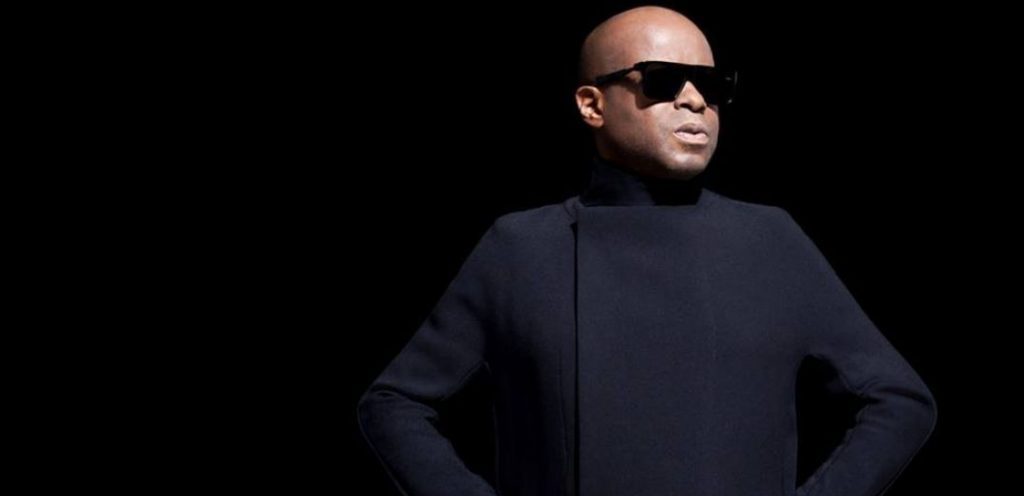
In The Last Angel of History (1996), a film essay by John Akomfrah that deals with concepts of Afrofuturism tracing de deployments of science fiction within the pan-African culture, a nomadic figure known as the data thief describes a time-space journey to explore the link between black music as a way of exploring the future. The film links spirituals, Sun Ra’s futuristic views, George Clinton’s P-funk and his Mothership Connection and the appearance of techno music.
One of the artists featured in this influential film is Juan Atkins. A hugely influential figure as well, the electronic music producer is considered the originator of techno music nonetheless, maybe a messenger on earth of this last angel of history. Starting as a funk musician from an early age, Atkins’s life completely changed when he discovered synthesisers and electronic music and started to make his own music.
At the beginning of the 80s, along with college friend Rick Davis, Atkins embarked on a journey that was meant to change the course of electronic music history. They formed Cybotron, a music project inspired by midwestern funk and the music of George Clinton as well as Kraftwerk and Yellow Magic Orchestra and futurist literary influences such as Alvin Toffler’s book Future Shock.
The name ‘Cybotron’, coined by Atkins, is a mix of cyborg and cyclotron. Cybotron was clearly influenced by the city Atkins and Davis were living in: the music worked to mirror the changes happening in Detroit, using technology -so ingrained in the city’s social structure- to capture this spirit. And Cybotron managed to project themselves into the future, producing a series of presaging compositions, including Techno City, Clear, Cosmic Cars, and their debut album Enter, considered by The Wire as a ground-breaking first-generation piece of pure machine music.
Cybotron’s music was clearly closer to electro, but it lay the de foundation for what would evolve into techno when Atkins, who had other visions for his music, started his solo career in 1985 using the alias Model 500. Alongside with friends Derrick May, Kevin Saunderson and Eddie Fowlkes, they rooted the blueprint for techno, with Atkins even coining the name of the new music genre. From here, the rest is history. Atkins became an influential reference keeping a highly prolific production career. He also founded Metroplex Records, his own record label, which he still runs. Metroplex released Atkins’s own productions as Model 500 and other aliases, as well as pivotal producers in the techno scene throughout all these years.
Fast forward forty years, and it looks like Enter is more relevant than ever. In the new and first-ever Cybotron live show -a collaboration between Atkins and visual technologists Pilot which is premiering at Barbican London on 12 April 2019 – Atkins will debut new material from the forthcoming Cybotron album, alongside original seminal tracks. Taking the audience into a multi-sensory journey where a revolutionary digital lighting and laser control system will enable multi-layers of audio to be fed in real-time into a bespoke visual generative engine.
This new Cybotron’s live show appears at a moment of particular significance when technology is again on the verge of a paradigm change and the impact of black culture and especially its futuristic expression, hopefully having a deeper recognition and influence. In the age of the advent of AI, The Cybotron Principle that a computer can be as good or a better musical collaborator than a person as well, seems more premonitory than ever.
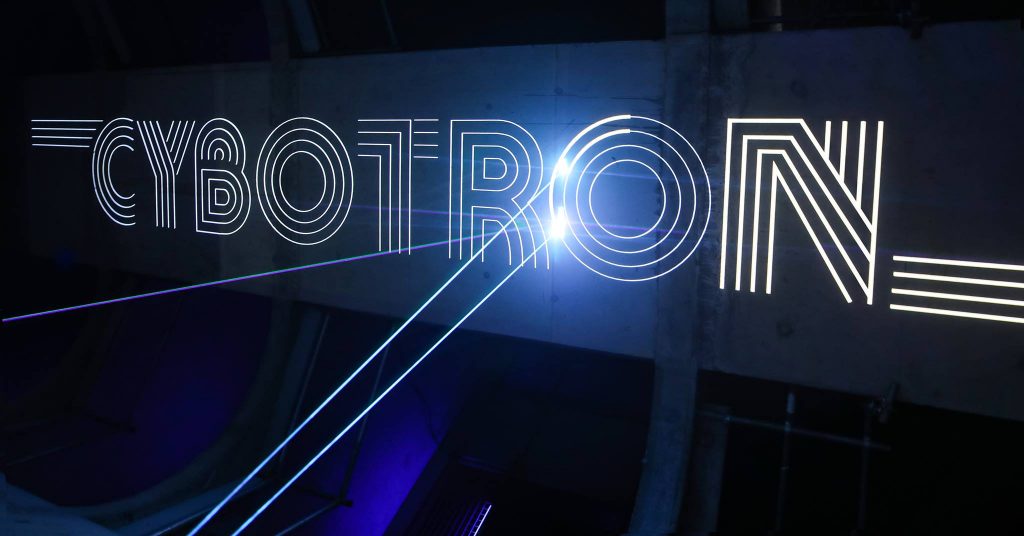
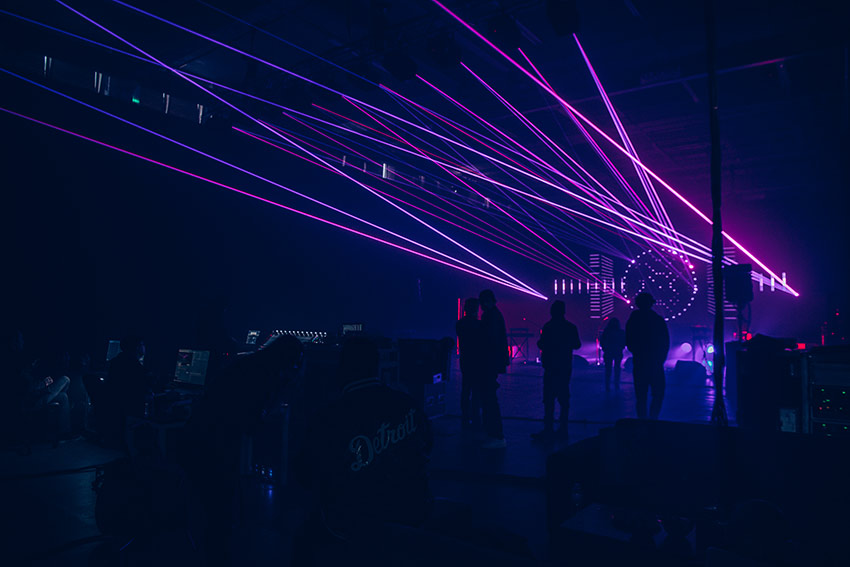
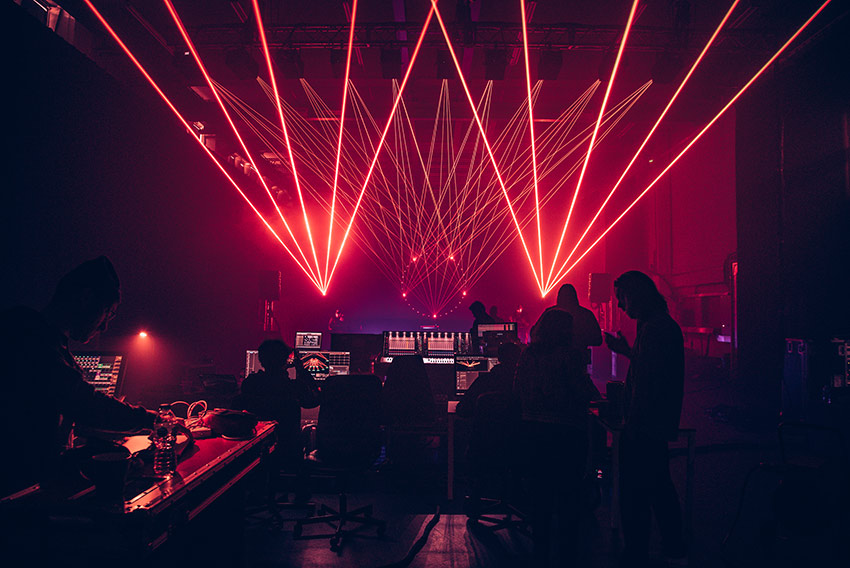
Cybotron’s main vision was dominated by the notion that human life would become so intertwined with technology that they’d be essentially inseparable. How do you see this concept almost 40 years fast-forward?
You can see this as things become more and more evident, like the 5G thing and the transhumanism they’re trying to roll out. It’s all further evidence of things progressing. In terms of music and new technology, technology is advancing all the time, and like anything on that level, it can be used for good or used for bad, and that’s a bitter-sweet pill that we all have to swallow.
Was the music of Cybotron very defined by the machines you were using back in the day?
I think the music was a default of what kind of machines and technology was available at the time. When you write a song or compose something in terms of what you’re using, you’re definitely kind of trapped in a way by the instruments that you use, be they acoustic or machine.
My first machine, which is also my favourite, is the MS10 Korg synthesiser which my grandmother bought me when I was around fourteen or fifteen years old. I composed lots of music on that machine, some of which is unreleased but don’t ask me where it is now.
Nowadays, how do you integrate old machines with new technologies? And which ones of these new technologies are you most interested in?
In the early days, people didn’t realise the role that the computer would play and how inter-linked to everything they would become. The computer ushered in the digital era, which provides bytes, samples, frames, all kinds of things… When I first started, computers weren’t the thing they would become…I mean, you could say the TR808 drum machine is sort of a computer, and it had only one function, so you can see how far things have come.
The biggest difference is that the implementation of computers has given the composition of electronic or techno music endless possibilities, and it’s limitless in terms of creativity. I still use some ‘hardware’ – gear, though, but I’m not gonna go into detail about this. I’ve got to say though that I have always created my best work when I was working with something new…a new machine…a new programme…and all electronic artists can identify with that in terms of tools, equipment etc. We spend half our time finding out about new gear to stimulate our creativity.
The computer has made things easier and faster. Now with a Digital Audio Workstation, what it allows you to do without cables etc is incredible. The number of hours and time lost due to faulty midi and audio cables and loose connections while you try to figure out why the machine isn’t working, well, that doesn’t happen with the new technology. And anyone in their teens or 20s probably doesn’t even know what a midi cable is! With new technologies, such as Ableton Live, which gets rid of all the clutter and shaky signal paths… that kind of variables are taken away.
How the integration of old and new “machines” translates in a live setup?
As I said already, the new technology can do most things you want which allows you to be freer in the Live set, and it’s set up for the live situation so well. Basically, there are old machines…classic gear, but in terms of the latest technology created, it makes the whole live performance more stable…no faulty midi cables. The older gear is often more for show than functionality now.
Having said that, like all artists, there’s an affinity for certain pieces of gear, and you always have that piece of gear with you and use it when playing live, as a DJ has with certain records that he or she always has with them.
Cybotron’s music was particularly influenced by the city of Detroit; will the music for the new LP you’ve been making will be reflecting, in a way, the changes and transformation the city has been enduring?
That’s a crazy question. I think that because I’m from Detroit and I still live in the city, then it will show through in my music. The whole nature of Cybotron and what I do is discovering new horizons and I don’t want to stay trapped. I will always reflect the changes of Detroit…in the same way, I will with the changes in the world. Not only that, I’m planning on collaborating with lots of different people…A lot of people have asked me…artists such as Vince Clarke and Kraftwerk are good friends. In fact, as Derrick May said in The Face magazine back in 1988, when we first came to England is that “our music is like George Clinton and Kraftwerk stuck in an elevator. Well, I would like to work with George Clinton and Kraftwerk..’Stuck In The Studio’ is already a working title in my mind. And, of course, along with original Cybotron partner Rik Davis (aka 3070)
What’s been the intellectual process behind the new AV show? And its main challenges?
I think it’s going to be highly immersive, and it will give people something new…a breath of fresh air. It’s the first-ever Cybotron Live show, and we’ve been working on combining the AV and music…some things work better than others, and it’s like taking educated guesses in which you’re trying to limit the expendables, and that’s something I think I’m good at.
Are there new territories you feel you still need to explore or take your work into?
I’m definitely looking to see what comes out of the collaborations with some of the people I’d like to work with, and I started out in the business wanting to meet my iconic heroes. There’s an inexplicable drive to explain and also go into deep space, which is definitely more and more infinite with possibilities.
What’s your chief enemy of creativity?
Faulty gear and/or a closed mind is the chief enemy of creativity
You couldn’t live without…
Myself…when you’re doing things that people like, it tends to take a piece out of you, and I always try to retain as much of myself as possible. This is the basic theme behind my new track, ‘We Will Maintain (Humanity),’ and the album I’m working on. It will be premiered at the Barbican Live Show with a couple of other new songs on April 12th. We’ve got to maintain the human aspect…the human element keeps it interesting.



